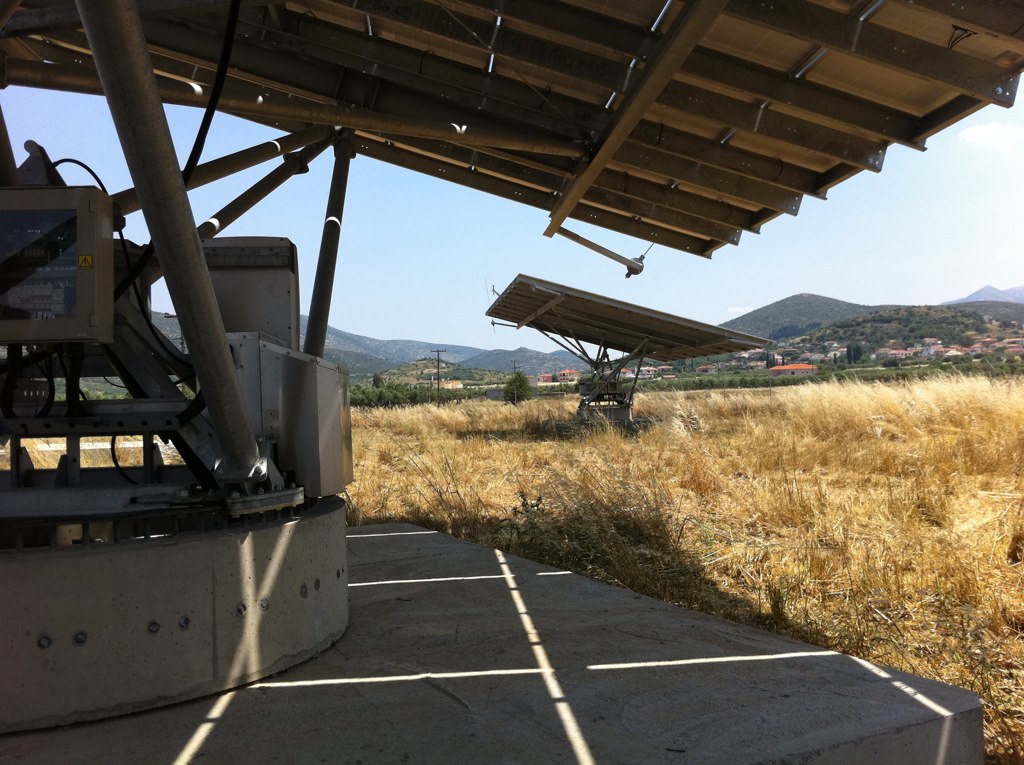Greek national electric utility Public Power Corp (PPC) will fund two large solar parks on mining sites in line with the nation’s plan to phase out coal.
The Greek solar market has returned to growth via public tenders and moves by organizations to embrace PV to reduce costs and hit sustainability goals. Plans for solar projects in the country’s mining regions have also started to dominate headlines.
Utility PPC’s goal is to install a massive 2 GW solar project in Ptolemaida in the Kozani region of northern Greece and a 1 GW installation on the Peloponnese peninsula in the south of the nation. Construction at Ptolemaida could start as early as next year.
Mega-solar plans
Greece’s environment and energy minister, Kostis Hatzidakis, made a formal announcement last weekend when meeting local stakeholders in Ptolemaida.
The minister said the PPC would move “rapidly” to install a 2 GW solar plant in the region, which is known for lignite mining.
Utility chief executive George Stassis confirmed the state-owned electric company had submitted an application to energy regulator the RAE for a generating license for 1.5 GW of solar capacity in Ptolemaida in December.
pv magazine has learned the PPC also plans to install 1 GW of solar capacity in Megalopoli, which also hosts mining sites and a coal-fired power plant.
Just transition
The move is part of Greece’s efforts to phase out coal from its electricity mix by 2028. Hatzidakis told interested parties in Ptolemaida the government will help the region shift to a fossil-fuel-free economic model. The 2 GW photovoltaic park is also part of the government’s plan to create new jobs in the region as it transitions to a coal-free future.
The Greek government has requested technical assistance from the European Commission, the European Investment Bank (EIB) and the European Bank for Reconstruction and Development (EBRD) to design a new economic model for the country’s mining regions.
Greece’s mining towns will also be supported by the European Union’s Just Transition Mechanism, part of the bloc’s proposed Green Deal. The fund, if agreed between member states during this week’s EU budget negotiations, would mobilize funds to support workers and citizens in the regions most affected by the transition to a coal-free future.
To date, however, stakeholders such as local councils have been slow to draft meaningful proposals for the energy transition in their areas.
The Greek branch of conservation charity the World Wide Fund for Nature has produced a documentary examining how the EU’s proposed Just Transition Mechanism could affect Greece.
Economic sense
The decision to rid Greece of its state-owned lignite fleet also makes economic sense.
The PPC is losing millions of euros each year by operating uneconomic lignite units and the company is running a huge deficit.
The Greek government elected in July appointed George Stassis to transform the PPC and upgrade its outdated business strategy.
Part of the PPC’s new strategy is to invest in renewables. The utility’s advantage is that it has around 6 GW of renewable power generation capacity to license out, some of which is expected to be approved in the near future.
The government announced in January it will fundamentally restructure the renewables licensing regime by introducing a digital system to speed up approvals.
The PPC has signed memoranda of cooperation with international firms to jointly develop renewable power projects in Greece. This week, for example, the PPC signed an agreement with Portugal’s EDP Renewables aiming to co-develop at least 400 MW of clean power capacity in Greece.
The PPC’s proposal for vast solar parks in mining regions is likely to involve such PV farms being broken up into special purpose vehicles to be co-financed with international investors.
Kozani project
Meanwhile, the Greek energy minister announced German developer Juwi is selling 204 MW of generation capacity which is under development in Kozani after being secured under three tender contracts. The project capacity will be sold to Athens-based oil company Hellenic Petroleum.
The Juwi project comprises three chunks of generation capacity – 139.24 MW, 27.68 MW and 37.37 MW – with the largest slice having negotiated a tariff of €0.05446/kWh for the solar power it will supply. The other two sections each secured a price of €0.06472/kWh.
This content is protected by copyright and may not be reused. If you want to cooperate with us and would like to reuse some of our content, please contact: editors@pv-magazine.com.



8 comments
By submitting this form you agree to pv magazine using your data for the purposes of publishing your comment.
Your personal data will only be disclosed or otherwise transmitted to third parties for the purposes of spam filtering or if this is necessary for technical maintenance of the website. Any other transfer to third parties will not take place unless this is justified on the basis of applicable data protection regulations or if pv magazine is legally obliged to do so.
You may revoke this consent at any time with effect for the future, in which case your personal data will be deleted immediately. Otherwise, your data will be deleted if pv magazine has processed your request or the purpose of data storage is fulfilled.
Further information on data privacy can be found in our Data Protection Policy.